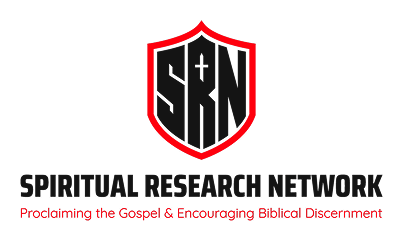Not everything labeled “Christian” is rooted in truth. In today’s spiritual climate, deception isn’t just possible—it’s predicted. Scripture warns that false teachers, counterfeit gospels, and spiritual manipulation will increase, especially in the last days. For faithful believers who want to honor God and protect their churches, understanding the signs of spiritual deception is not optional—it’s essential.
Spiritual deception can be subtle. It may come through a popular podcast, a best-selling book, or a local church leader. Knowing how to spot deception begins with Scripture, prayer, and biblical discernment.
Spiritual Deception in the Church: What Scripture Tells Us
From Genesis to Revelation, God consistently warns His people about deception. In Matthew 24, Jesus tells His disciples, “See to it that no one misleads you.” In 2 Timothy 4:3-4, Paul speaks of a time when people will not endure sound doctrine but will gather teachers who say what they want to hear. False teaching doesn’t always appear destructive—it often looks good, feels right, and sounds convincing.
That’s why knowing the signs matters.
Twisting or Ignoring Scripture
One of the clearest signs of spiritual deception is the misuse of Scripture. False teachers may quote verses out of context, spiritualize texts to fit personal visions, or avoid difficult passages altogether. The Bible becomes a tool for persuasion rather than revelation.
This tactic often leads people away from the full counsel of God’s Word. Take caution if you notice leaders avoiding key doctrines, redefining terms, or claiming fresh interpretations without accountability.
Promoting a Man-Centered Gospel
True Christianity points to Christ’s finished work and our need for repentance and grace. Deceptive movements often center on human potential, personal empowerment, or self-improvement. While these themes may sound uplifting, they shift the focus away from the cross.
A man-centered gospel may downplay sin, avoid topics like judgment or holiness, and replace obedience with personal experience. It creates consumers, not disciples.
Elevating Leaders Above Accountability
Another sign of spiritual deception is unchecked authority. Some churches or ministries place their leaders on pedestals, discouraging any form of disagreement. Titles like “apostle,” “prophet,” or “visionary” are sometimes used to shield individuals from correction.
In biblical leadership, authority is paired with humility, service, and accountability. If someone claims direct revelation but resists testing or correction, beware. 1 John 4:1 urges believers to test every spirit—even those claiming to be from God.
Dependence on Experience Over Truth
God does use experience—but not apart from His Word. Many deceptive teachings rely heavily on visions, feelings, dreams, or mystical encounters, while treating Scripture as secondary.
When spiritual experiences are elevated above biblical doctrine, confusion and error follow.
Feelings can mislead. The truth remains constant. Always test experiences against Scripture, not the other way around.
Isolation from Outside Input
Deceptive groups often cut off members from outside voices. This may include discouraging relationships with other Christians, avoiding Christian media, or warning members against “critics.” This creates an echo chamber, where only approved voices are heard and believed.
Healthy churches welcome questions and dialogue. Isolation is a strategy for control, not discipleship.
Learn to Recognize the Signs of Spiritual Deception
Discerning spiritual deception takes time, humility, and a firm foundation in God’s Word. It's not about judging others—it’s about guarding your heart and encouraging truth within the Body of Christ. If you’ve encountered questionable teachings or feel spiritually unsettled, don’t ignore those checks in your spirit.
Faithful ministries and sound cult recovery resources are available to help you navigate confusion, examine teachings biblically, and stay grounded in the true gospel.
If you need help testing teachings or navigating a spiritually confusing situation, contact Spiritual Research Network to explore trusted biblical tools, articles, and ministry resources. You don’t have to sort through it alone.


.jpg)
